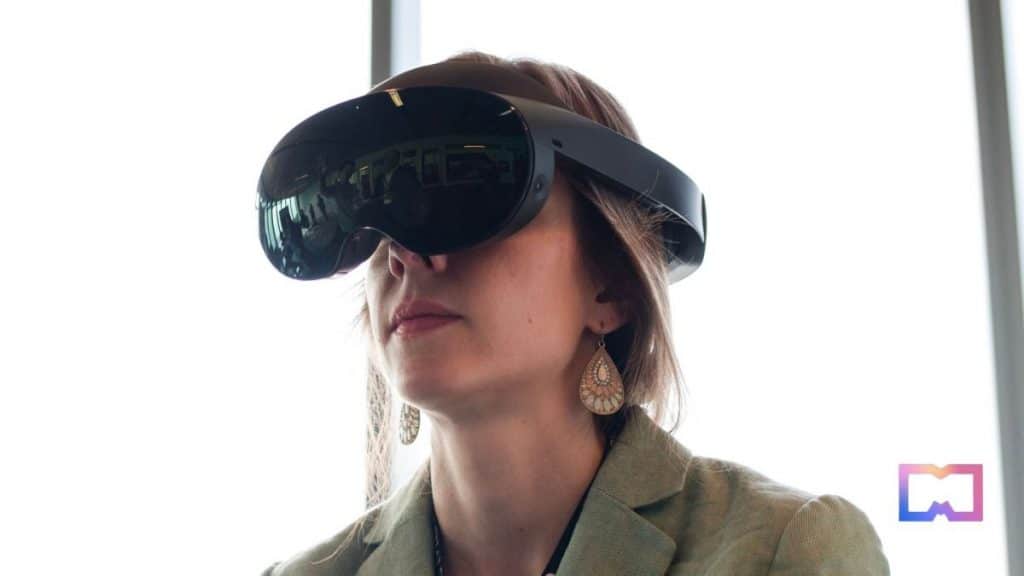Metaverse Is Transforming Modern Education, Claims Meta


In Brief
Meta claims that its virtual world – metaverse, is revolutionizing education with early studies showing enhanced learning and engagement.
Challenges like data privacy and tech adoption remain, requiring a multi-sector effort for full-scale implementation.

From chalkboards to projectors, and textbooks to tablets, education has always evolved alongside technology. The latest technological frontier in education is the Metaverse—an interconnected, virtual shared space created by the convergence of virtually enhanced physical reality and interactive digital spaces.
Meta recently claimed the Metaverse is set to revolutionize how educators teach and students learn. The concept of the Metaverse includes a range of technologies like Virtual Reality (VR), Augmented Reality (AR), and Mixed Reality (MR). Meta, formerly known as Facebook, is one of the major companies pushing the boundaries in this space.
The company announced a new program with 15 U.S. universities focused on utilizing immersive technology for education. Meta claims that these aren’t just digital classrooms; they’re entirely new landscapes for experiential learning.
According to a PwC study, 40% of learners using VR feel more confident in their job performance versus traditional training.
Introducing Meta Quest 3.
— Meta Quest (@MetaQuestVR) June 1, 2023
Coming this fall. Sign up for updates at: https://t.co/gt8P9KkNsd
Learn more at Meta Connect on September 27 – 28.#MetaQuest3 pic.twitter.com/CPFtGyNYC2
American Universities Take the Lead
Meta will be collaborating with 15 American universities to examine how these immersive technologies can further education. For example, Stanford University’s Business School is using VR applications like BodySwaps to simulate difficult conversations in a business setting.
Purdue Global University, on the other hand, is employing VR simulations to train nurses in a hospital setting, providing them a risk-free environment to practice complex procedures.
To ease the access to educational resources, Meta is introducing dedicated “education shelves” in the Meta Quest Store. This aims to serve as a marketplace for educational applications, ranging from basic STEM subjects to more specialized topics, making it easier for educators and students to find appropriate resources.
📢 We’ve launched our first #GenAI feature!
— Bodyswaps® (@Bodyswaps_VR) September 12, 2023
We've given our Job Interview Skills simulator a boost. Powered by GenAI, learners get personalised feedback and model answers based on performance during job interview simulations.
Try a demo today: https://t.co/qisKV7TkMw pic.twitter.com/k1mqjrd9zE
European Education Adapts to New Tech
Europe is not far behind in integrating the Metaverse into education. In Italy, schools can use government funds to integrate digital and virtual technologies into their curricula. The University of Camerino in Italy plans to conduct its first course entirely in the Metaverse, a significant milestone in immersive education.
While Meta is undoubtedly a major player, other companies are also contributing to the educational Metaverse. GoStudent in Germany and Austria, for instance, offers virtual language learning environments, while the UK-based Noun Town uses game elements to teach new languages through a VR interface.
Accessibility and Implementation
Despite the promise, the adoption of Metaverse technologies faces several hurdles. Costs of hardware, the need for high-speed internet and the necessity of teacher training are all barriers that could slow down widespread adoption.
The introduction of the Metaverse in education holds immense promise but also poses serious challenges that require a collective effort to overcome.
However, navigating the challenges and making the most of the opportunities will require a cautious yet proactive approach. Universal accessibility, educator training, continued research and evaluation will be crucial for this technology to realize its full potential.
Read more:
- Remilia & Milady Founder Reports $1 Million Loss and Code Takeover in Rogue Developer Heist
- Thai PM Announces $16B ‘Digital Wallet’ Cash Handout to Boost Struggling Economy
- Virtuzone and TOKO Network Launch Dubai’s First Tokenized Web3 Crowdfunding Platform
Disclaimer
In line with the Trust Project guidelines, please note that the information provided on this page is not intended to be and should not be interpreted as legal, tax, investment, financial, or any other form of advice. It is important to only invest what you can afford to lose and to seek independent financial advice if you have any doubts. For further information, we suggest referring to the terms and conditions as well as the help and support pages provided by the issuer or advertiser. MetaversePost is committed to accurate, unbiased reporting, but market conditions are subject to change without notice.
About The Author
Nik is an accomplished analyst and writer at Metaverse Post, specializing in delivering cutting-edge insights into the fast-paced world of technology, with a particular emphasis on AI/ML, XR, VR, on-chain analytics, and blockchain development. His articles engage and inform a diverse audience, helping them stay ahead of the technological curve. Possessing a Master's degree in Economics and Management, Nik has a solid grasp of the nuances of the business world and its intersection with emergent technologies.
More articles

Nik is an accomplished analyst and writer at Metaverse Post, specializing in delivering cutting-edge insights into the fast-paced world of technology, with a particular emphasis on AI/ML, XR, VR, on-chain analytics, and blockchain development. His articles engage and inform a diverse audience, helping them stay ahead of the technological curve. Possessing a Master's degree in Economics and Management, Nik has a solid grasp of the nuances of the business world and its intersection with emergent technologies.



















































